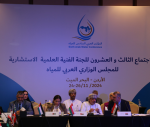You are here
In the fight against IS
Feb 01,2015 - Last updated at Feb 01,2015
Since the crash of the Royal Jordanian Air Force jet and the capture of its pilot by the so-called Islamic State, Jordan and IS have been in direct conflict.
IS is using the unfortunate crash to create confusion in Jordan and has been applying pressure on the Kingdom.
Japan has also become a direct target for IS since the visit of Japanese Prime Minister Shinzo Abe to Jordan, where he made a $200m donation to the anti-terror campaign.
This was quickly followed by two Japanese hostages being taken by IS, which called for a $200m ransom to set them free.
IS tried to stir confusion in Jordan by linking the release of the Japanese hostage to the release of Sajida Rishawi, a terrorist who was arrested in Jordan in 2005, rather than to the release of the Jordanian pilot. This, IS hopes, will place a strain on the Jordan-Japan alliance.
It is clear that IS understands the important role Jordan plays in the region and understands that this situation can be used pragmatically, as leverage in the fight against the coalition.
From the beginning, as expected, IS has used media, videos, interviews, leaks and rumours to create chaos in Jordan.
The risks to Jordan are increasing, but there is a distinct failure to communicate and demonstrate to the population the extent of these risks and dangers facing the country.
From the moment Iraq fell and the common border became a channel to export terrorism to Jordan, there has been a continued and growing risk to the Kingdom.
The greatest problem today is apathy and the failure to understand the risk and the need to come together and make the sacrifices that are necessary to win the war.
Jordan does not have the time to address the fragmentation that is appearing or the sense of alienation that some are trying to reinforce.
Without a sense of national identity and pride, with which Jordanians can identify and that helps them bond together, there is a danger that the country will enter a long-term conflict with terrorists.
This kind of confrontation also needs strategies, tactics, people and the right mentality to ensure success.
In order to face the challenges, there may be need for a review of tactics, strategies and even personnel.












